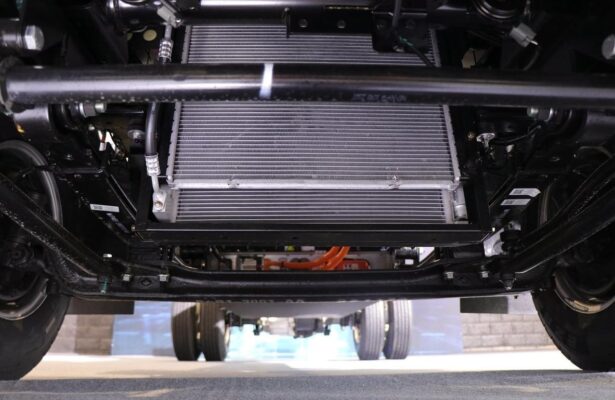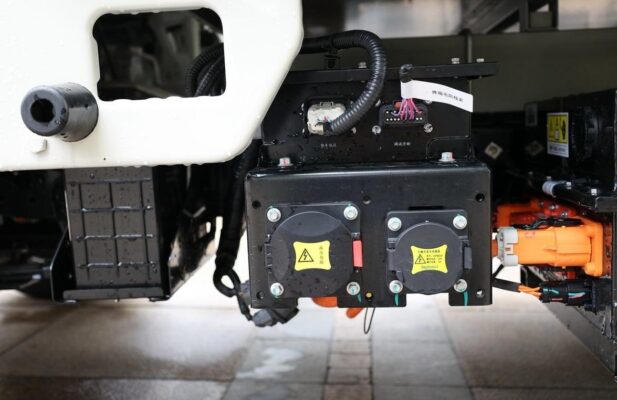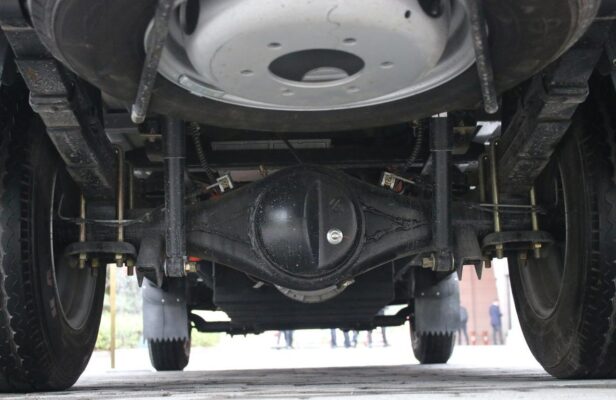اخبار کامیون های برقی
Precautions for charging new energy vehicles in summer
ارسال شده در توسط کامیون های برقی
In the midst of the sweltering summer heat, people are often troubled by the muggy weather and may experience a lack of appetite. At such times, it becomes essential to pay attention to one’s diet, nourish the spleen and stomach, and ensure that one can eat well. Similarly, for new energy vehicleس, summer can be an uncomfortable season as they too encounter various issues when it comes to “eating” and charging. Therefore, the vast number of car owners should learn to charge their beloved cars correctly and take good care of them.

Summer charging guide:
- Avoiding charging in extreme conditions:
In high-temperature weather, it is crucial not to charge your new energy vehicle under direct sunlight or immediately after driving. When a vehicle has been in use, the battery generates heat. If charging is initiated immediately, the already warm battery will be subjected to additional heat from the charging process, which can potentially damage the battery. Therefore, it is advisable to let the vehicle sit for a while and allow the battery to cool down before starting the charging process. This waiting period gives the battery time to dissipate heat and reach a more suitable temperature for charging, thus preventing high temperatures from having a negative impact on the battery’s performance and lifespan.
به عنوان مثال, imagine a car that has just been driven on a hot summer day. The battery temperature is elevated due to the driving process. If the owner were to plug in the charger immediately, the combined heat from driving and charging could cause the battery to overheat. This overheating can lead to various problems such as reduced battery capacity, shortened lifespan, and even potential safety hazards. By waiting for the battery to cool down, the owner can ensure a more stable and safe charging process.

- Choosing the right charging environment:
When charging a new energy vehicle, it is essential to choose a cool and ventilated environment. An overly stuffy environment is not conducive to the charging state as it can prevent proper heat dissipation. The charging process itself generates heat, and if the surrounding environment is not well-ventilated, the heat can accumulate and cause the battery and charger to operate at higher temperatures than normal. This not only damages the battery but also reduces the service life of the charger.
A cool and ventilated area allows for the efficient dissipation of heat, ensuring that the charging process occurs at a more optimal temperature. This helps maintain the integrity of the battery and charger and prolongs their lifespan. به عنوان مثال, a garage with good ventilation or a shaded outdoor area can be ideal for charging in summer. These locations allow the heat generated during charging to escape, reducing the risk of overheating and potential damage.

- Monitoring charging time and frequency:
During the use of a new energy vehicle, it is important to grasp the charging time and frequency according to the actual situation. Overcharging, over-discharging, and undercharging can all have a negative impact on the battery life. Overcharging can cause the battery to overheat and may lead to damage to the battery cells. Over-discharging can also stress the battery and reduce its capacity over time. Undercharging, از طرف دیگر, may not fully utilize the battery’s capacity and can lead to inconsistent charging patterns.
To avoid these issues, car owners should monitor the battery’s state of charge and charge the vehicle when it is appropriate. به عنوان مثال, if the battery is nearing a low charge level, it is advisable to charge it before it reaches a critically low level. Similarly, when charging, it is important not to leave the vehicle plugged in for an extended period after it is fully charged. By being mindful of the charging time and frequency, owners can help maintain the health of the battery and ensure its longevity.

- Daily charging for shallow cycling:
It is recommended to charge the new energy vehicle every day to keep the battery in a shallow cycle state. Shallow cycling refers to charging and discharging the battery within a relatively small range of its capacity. This approach can help extend the battery life as it reduces the stress on the battery cells. By charging the battery regularly and not allowing it to discharge completely, owners can maintain a more stable battery performance and increase its lifespan.
به عنوان مثال, if a car owner charges their vehicle every day after using it for a short distance, the battery will experience shallow cycling. This can be beneficial as it minimizes the wear and tear on the battery compared to deep discharges and infrequent charging. علاوه بر, shallow cycling can also help maintain a more consistent battery capacity over time.

- Monitoring charger plug temperature:
When charging the battery, if the charger plug is constantly heating up and the heating time is relatively long, immediate action should be taken. This could indicate a problem such as a short circuit or poor contact. To check for these issues, pull out the charger and inspect the plug. Look for any signs of oxidation, such as rust. If oxidation is present, it should be removed immediately. A short-circuited or poorly connected plug can not only affect the charging process but also pose a safety hazard.
به عنوان مثال, if a charger plug is overheating, it could potentially cause a fire or damage the charging port. By regularly inspecting the plug and addressing any issues promptly, car owners can ensure a safe and efficient charging process.

- Understanding temperature impact on charging:
It should be understood that temperature can have a significant impact on car batteries. As the weather temperature gradually rises to 30-38°C, and the battery is charged at a high temperature above 40°C, the thermal effect of the charger can become uncontrolled. In such cases, if the battery is not fully charged and the green light does not turn on, regardless of whether the light changes or not, it is important not to charge for more than 8 hours. This is to prevent the battery from swelling due to excessive heat.
به عنوان مثال, if a vehicle is charged in a hot environment and the temperature exceeds the safe limit, continued charging for an extended period can cause the battery to overheat and swell. This can lead to serious damage to the battery and may even pose a safety risk. By being aware of the temperature limits and adjusting the charging time accordingly, owners can protect their batteries from potential damage.

- Ensuring proper heat dissipation during charging:
When charging a new energy vehicle, it is crucial to remember not to put the charger on the car or cover it. This can prevent uneven heat dissipation and potentially lead to combustion and fire. The charger generates heat during the charging process, and if it is covered or placed in an area where heat cannot escape easily, the temperature can rise rapidly. This can not only damage the charger but also pose a significant safety hazard.
به عنوان مثال, if a charger is covered with a blanket or placed in a closed compartment, the heat generated during charging can build up and potentially cause a fire. By ensuring that the charger is in an open and well-ventilated area, owners can help maintain proper heat dissipation and reduce the risk of accidents.
در نتیجه, charging a new energy vehicle in summer requires special attention to various factors to ensure the safety and longevity of the battery and charger. By following these precautions and guidelines, car owners can enjoy a more reliable and efficient charging experience and keep their vehicles in good condition.
